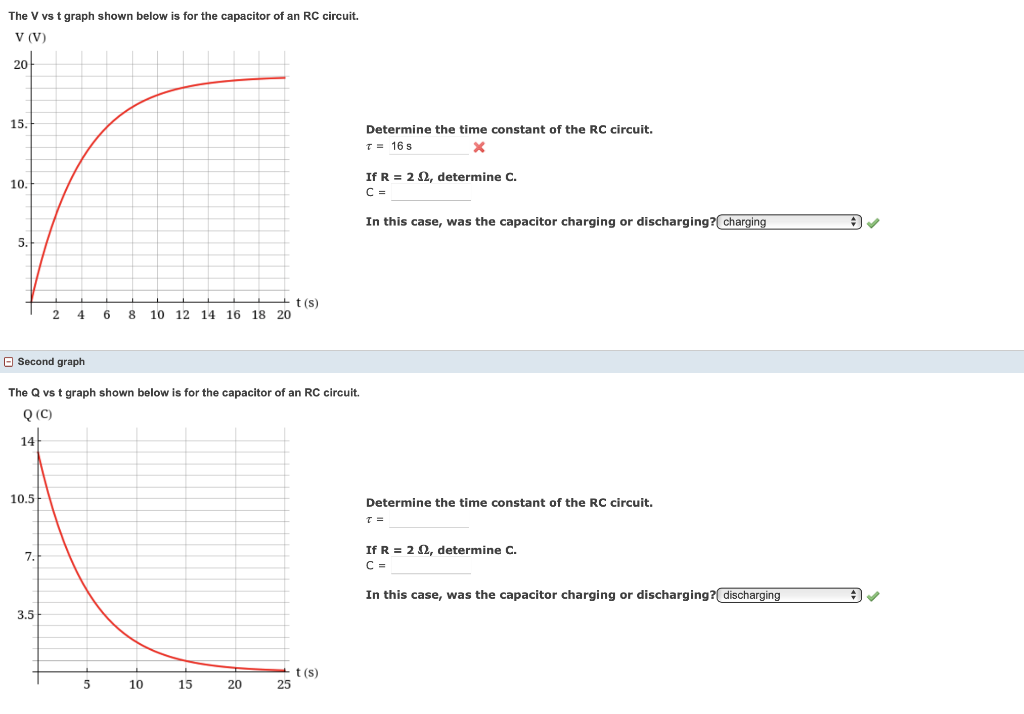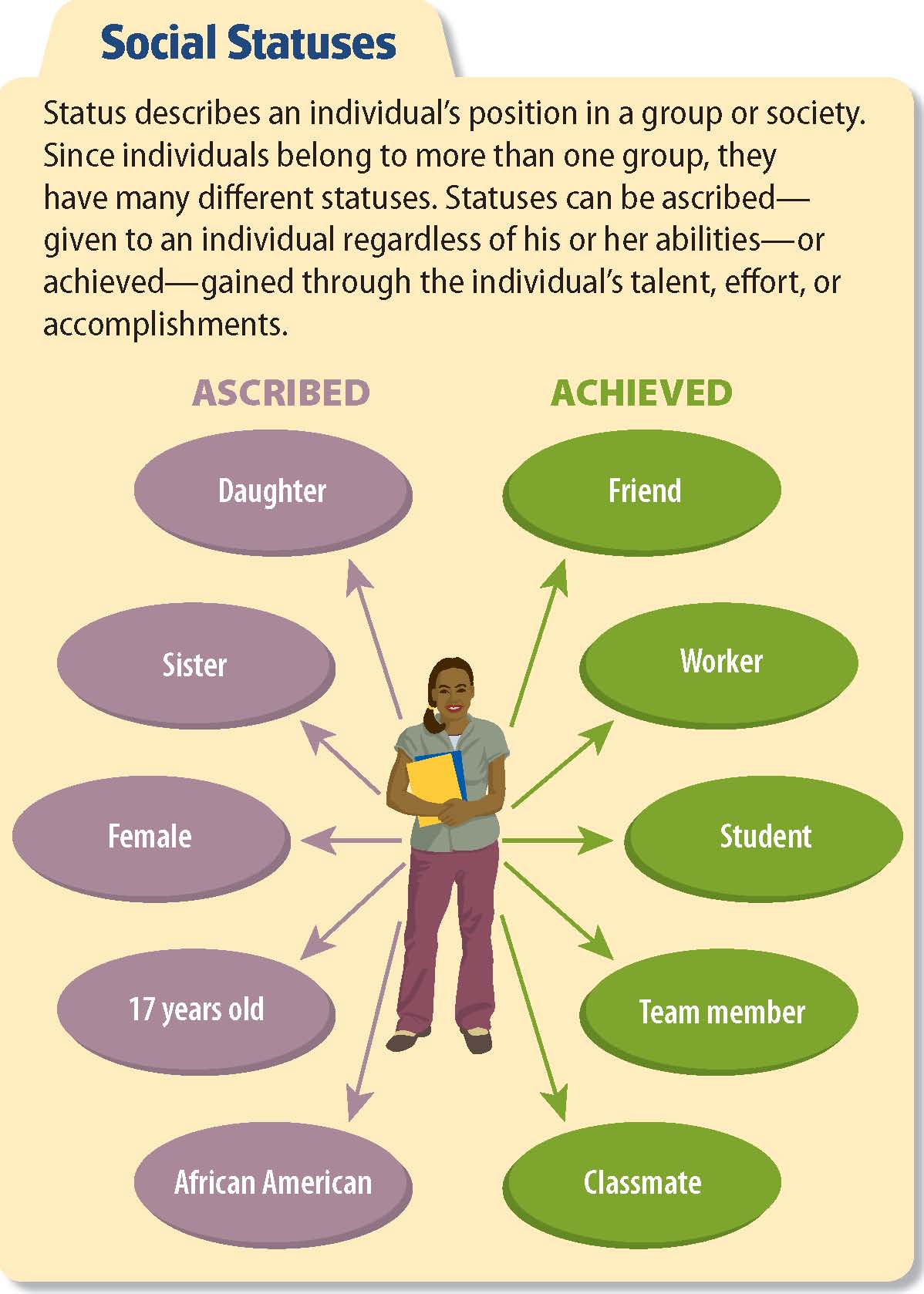Imagine a world where your career, your social standing, your very identity were determined at birth. It sounds like a dystopian novel, but in many ways, this is the reality of ascribed statuses. These seemingly fixed labels, often assigned based on factors we have no control over, play a profound role in shaping our lives, influencing everything from our opportunities to our perspectives. Let’s delve into the world of ascribed statuses, exploring what they mean, how they are assigned, and how they impact our experiences.

Image: www.chegg.com
Ascribed status refers to the social positions we are born into or involuntarily acquire. It’s about the labels we inherit, like our race, gender, caste, ethnicity, or family lineage. It’s not about personal achievement or effort; it’s about the categories we are slotted into based on factors beyond our control. These labels can be powerful, influencing our access to resources, opportunities, and even the way we perceive ourselves.
Understanding the Power of Ascribed Statuses
To grasp the significance of ascribed statuses, let’s start with the concept of social stratification. This refers to the hierarchical arrangement of individuals and groups within a society, with some having greater power, wealth, or prestige than others. Ascribed statuses often play a central role in this stratification, creating categories that can determine access to resources and shape social interactions.
For instance, consider the impact of caste. In some cultures, caste dictates a person’s occupation, social standing, and even whom they can marry. These rigid categories are often passed down through generations, with little opportunity for social mobility. The power of birth over choice becomes starkly evident.
Real-World Ascribed Statuses Examples
The examples of ascribed statuses are diverse and impactful, shaping the lives of individuals and societies around the world:
- Race: Race, a social construct based on perceived physical characteristics, often carries significant social implications. It can influence access to housing, education, employment, and even healthcare, leading to systematic inequalities.
- Gender: Although gender can be a complex interplay of biological sex and social roles, it’s often assigned at birth, creating expectations, stereotypes, and limitations. Individuals may face challenges or advantages based solely on their perceived gender, impacting their opportunities and experiences.
- Ethnicity: Ethnicity, encompassing cultural heritage, language, and traditions, can also shape a person’s life. It often influences community ties, social networks, and even cultural expression, impacting opportunities and interactions.
- National Origin: One’s birthplace or nationality can significantly impact access to opportunities, healthcare, education, and even cultural integration in a new society. Immigration policies and societal attitudes can create both barriers and advantages based on national origin.
- Family Background: The social standing and resources of a person’s family can have a profound impact on their life trajectory. Connections, wealth, and social capital inherited through family can open doors to opportunities or create barriers based solely on birth.
- Disability: Physical or mental disabilities, while not always visible, can be powerfully impactful, influencing a person’s access to accommodations, employment, and societal acceptance.
Beyond Labels: Navigating the Impact of Ascribed Statuses
Understanding the power of ascribed statuses isn’t about simply recognizing labels. It’s about recognizing how these labels, often invisible to those who don’t experience them, can shape individuals’ lives, opportunities, and interactions. There are several important aspects to consider:
- Intersectionality: It’s crucial to understand that these statuses rarely exist in isolation. Individuals hold multiple identities, and the complexities of these intersecting statuses can create unique challenges and opportunities. For example, a woman of color may face distinct challenges based on both her race and gender.
- Privilege & Disadvantage: Some ascribed statuses can bestow privilege, while others can lead to disadvantage. Recognizing these inequalities helps us address issues of systemic bias and advocate for greater equality.
- Social Mobility: While some ascribed statuses may seem fixed, social mobility can occur through individual efforts, political change, and societal progress. Recognizing opportunities for change and advocating for equitable systems can address the disadvantages associated with certain statuses.

Image: app.emaze.com
Expert Insights on the Evolving Landscape of Ascribed Statuses
Dr. Amanda Thompson, a leading sociologist, emphasizes the importance of deconstructing stereotypes associated with ascribed statuses. “We must move beyond simplistic categorization and embrace the richness and diversity within each category,” she says. “By challenging stereotypes and promoting inclusive narratives, we can foster greater understanding and equity.”
Actionable Steps: Embracing Change and Promoting Equality
As individuals, we can play a crucial role in promoting equity and challenging the limitations associated with ascribed statuses:
- Become a Conscious Observer: Pay attention to how ascribed statuses influence social interactions, media representations, and policies. Ask critical questions and challenge assumptions about individuals based on their ascribed statuses.
- Advocacy & Allyship: Advocate for policies and initiatives that promote equality and address specific challenges associated with certain ascribed statuses. Be an ally to those who experience disadvantage based on their identity.
- Education and Awareness: Educate yourself and others about the complex impacts of ascribed statuses, fostering understanding and promoting empathy and inclusivity.
Ascribed Statuses Examples
Conclusion: Moving Toward a More Equitable Future
Ascribed statuses are powerful forces that can shape both individuals and societies. By understanding the complexities of these labels and their impact, we can work to create a more equitable and inclusive world for everyone. Let’s move beyond prejudice and embrace the diversity and richness that our varied identities bring to the human experience.
This is just a starting point. Continuing to learn about specific challenges and opportunities associated with various ascribed statuses, engaging in meaningful dialogue, and promoting understanding and inclusivity are all crucial steps toward a more just and equitable future. Share your thoughts and experiences in the comments. Together, we can challenge societal norms and build a world where our ascribed statuses are less determinative and our shared humanity more valued.






